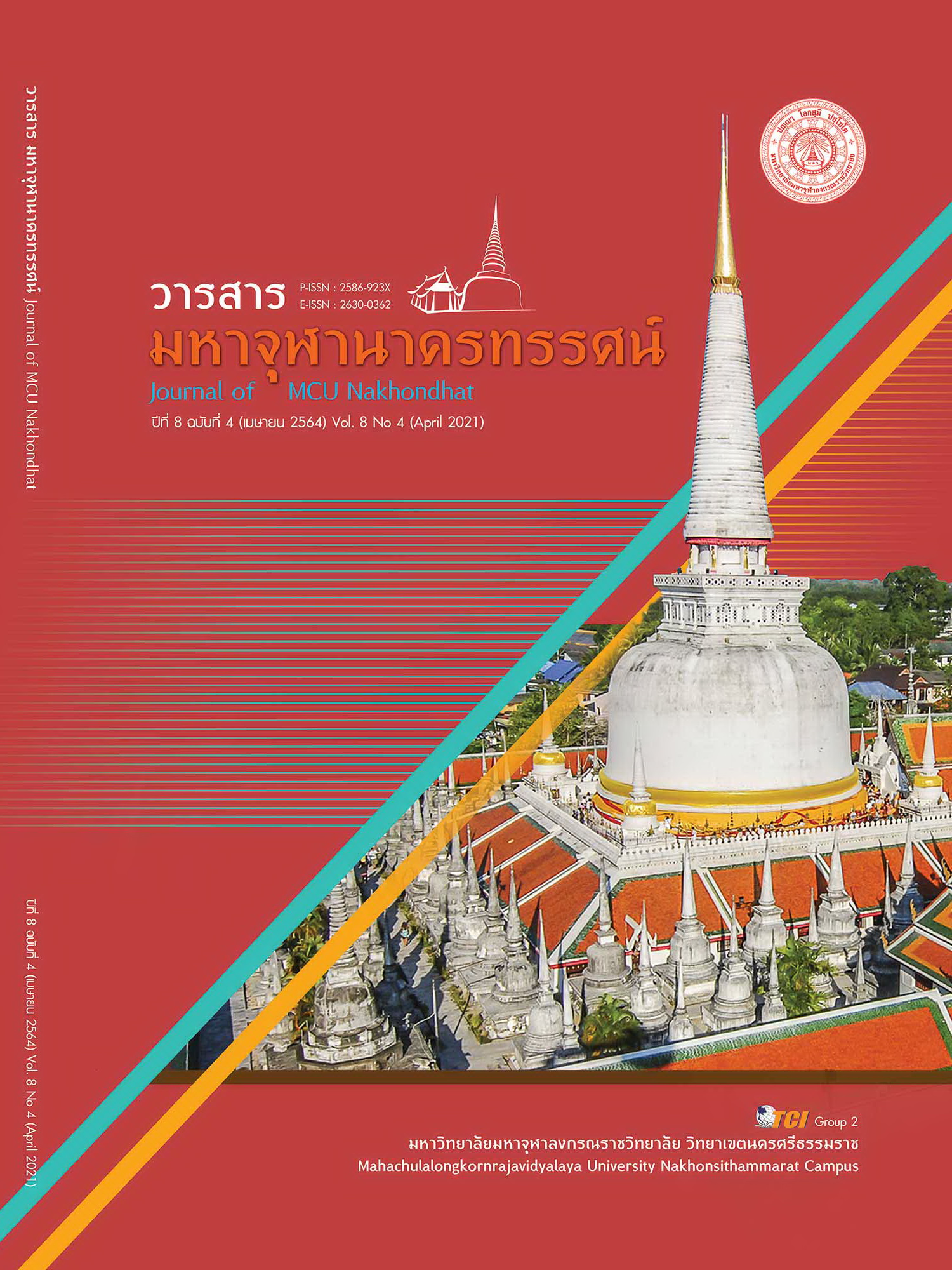FACTORS AFFECTING INTENTION TO USE SOLAR CELL TECHNOLOGY AMONG PEOPLE IN BANGKOK THROUGH THE THEORY OF PLANNED BEHAVIOR: TPB
Main Article Content
Abstract
The objectives of this research are: 1) To study demographic characteristics Media exposure, attitude, subjective norm, perceived behavior control to use solar cell technology and the intention to use solar cell technology among people in Bangkok. 2) To study the differences in media exposure classified by demographic characteristics 3) To study the influence of media exposure, attitudes, subjective norm and perceived behavior control towards the intention to use solar cell technology among people in Bangkok. This research is the quantitative research method and the sample group are included 400 of people 24 years in Bangkok area. A preliminary analysis base on descriptive statistics such as percentage, mean, standard deviation and used t - test, One - Way ANOVA and Multiple Regression Analysis to justify hypothesis. Result of the study found that 1) The majority of the population are female 52.75%. Age range are 33 - 41 years 34.25%. Education Bachelor's degree 56.25%. Company employees 58.25%. Average Income 55,001 Baht and Residing in detached house 56.75%. The average media exposure was 3.08 (moderate level), attitudes mean score of 4.25 (strongly agreed level), subjective norm mean score of 3.11 (moderate level), perceived behavior control to use solar cell technology mean score of 3.48 (high level) 2) different demographic characteristics have no different exposure to the media about solar cell technology. 3) Multiple regression analysis found that the main factor affecting decision to use solar cell technology were attitude, subjective norm and perceived behavior control towards to use solar cell technology was a significant level of 0.05
Article Details
References
. (2562). แผนยุทธศาสตร์กรมพัฒนาพลังงานทดแทนและอนุรักษ์พลังงานตามแม่บทของกระทรวงพลังงาน พ.ศ. 2562 - 2565. เรียกใช้เมื่อ 5 ตุลาคม 2562 จาก https://www.dede.go.th/download/ITA/O04_63_1.pdf
กรรณิการ์ คงทอง. (2561). ความตั้งใจเชิงพฤติกรรมในการใช้เทคโนโลยีของกลุ่ม เจเนอเรชั่นเบบี้บูมเมอร์และ เจเนอเรชั่นเอ็กซ์. ใน วิทยานิพนธ์บริหารธุรกิจมหาบัณฑิต สาขาบริหารธุรกิจ. มหาวิทยาลัยเทคโนโลยีราชมงคลกรุงเทพ.
กองยุทธศาสตร์บริหารจัดการ สำนักยุทธศาสตร์และประเมินผล. (2562). สถิติกรุงเทพมหานคร 2562. เรียกใช้เมื่อ 12 มกราคม 2564 จาก http://www.bangkok.go.th/pipd/page/sub/16647/สถิติกรุงเทพมหานคร-2562
ปริยดา วันไทย. (2552). การเปิดรับสื่อ ความตระหนัก และพฤติกรรมที่เกี่ยวข้องกับประเด็นภาวะโลกร้อน ของนิสิต นักศึกษาในเขตกรุงเทพมหานคร. ใน วิทยานิพนธ์นิเทศศาสตร์มหาบัณฑิต สาขาวิชานิเทศศาสตร์พัฒนาการ. จุฬาลงกรณ์มหาวิทยาลัย.
มาร์เก็ตติ้ง อุปส์. (2562). กรณีศึกษา “ไฟ จาก ฟ้า” มิติใหม่การสื่อสารที่เข้าถึงทุกคน. เรียกใช้เมื่อ 25 มกราคม 2563 จาก www.marketingoops.com
วรรณศิริ สิทธินิสัยสุข. (2559). ปัจจัยที่ส่งผลต่อความตั้งใจการเลือกซื้อผลิตภัณฑ์เสริมอาหารของนิสิตระดับปริญญาตรีมหาวิทยาลัยบูรพา จังหวัดชลบุรี. ใน วิทยานิพนธ์นิพนธ์บริหารธุรกิจมหาบัณฑิต สาขาบริหารธุรกิจสำหรับผู้บริหาร. มหาวิทยาลัยบูรพา.
ศูนย์ข่าวด้านพลังงาน. (2561). อาเซียนลงนามเอ็มโอยู IRENA เพิ่มการใช้พลังงานหมุนเวียนให้ได้23%ในปี2568. เรียกใช้เมื่อ 24 ตุลาคม 2563 จาก https://www.energynewscenter.com
สิทธิโชค วรานุสันติกุล. (2546). จิตวิทยาสังคม:ทฤษฎีและการประยุกต์. กรุงเทพมหานคร: ซีเอ็ดยูเคชั่น.
Ajzen, I. (1988). From intentions to actions. Attitudes, personality and behavior. Chicago: Dorsey Press.
Bandura, A. (1977). Self - efficacy: toward a unifying theory of behavioral change. Journal of Psychological review, 84(2), 191-215.
Bettinghaus, E. P. (1968). Persuasive communication. New York: Holt Renehautand Winston.
Cochran, W. G. (1953). Sampling Techiques. New York: John Wiley & Sons. Inc.
Francis, J. et al. (2004). Constructing questionnaires based on the theory of planned behaviour: A manual for health services researchers. In Centre for Health Services Research. University of Newcastle upon Tyne.
Kawamoto, K. (1997). 10 Things You Should Know about New Media. San Fran - cisco: The Freedom Forum, Pacific Coast Center San Francisco.
Mcleod, J. M. & O’ Keefe, G. J. (1972). Mass Communication Research. London: SagePublication.


